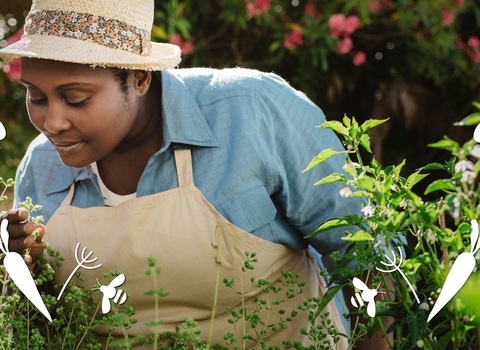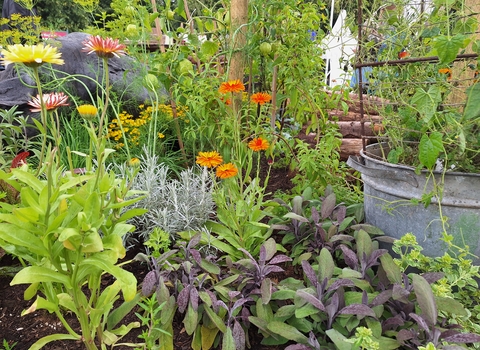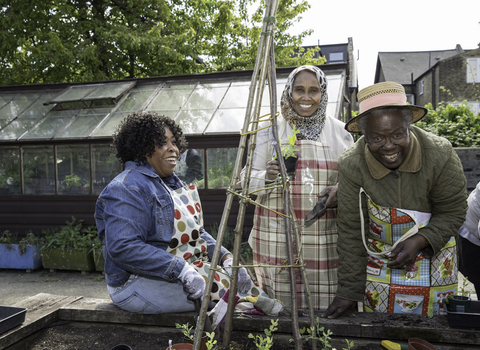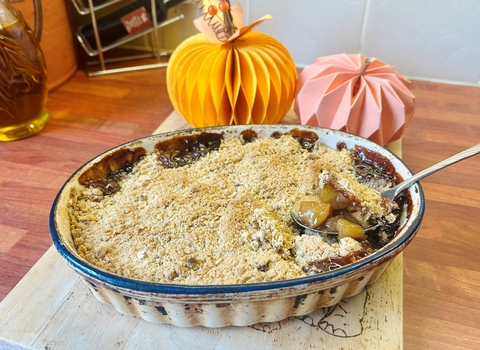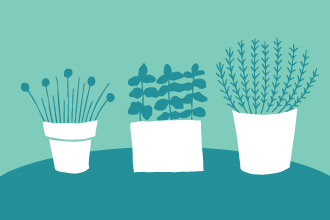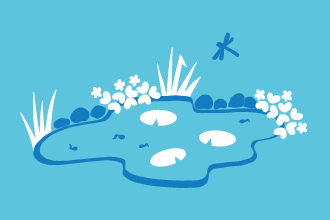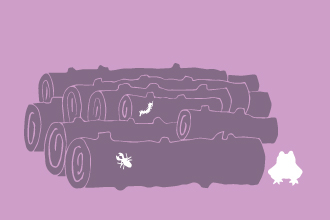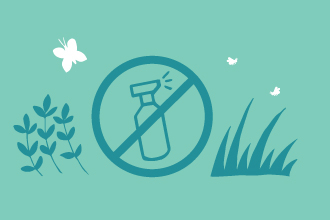Welcome!
Whether you’re a beginner or a seasoned gardener, an individual, a group, a school or a business; whether you have a huge garden or a balcony; whether you're brand-new to growing or you've been gardening for years - we’ve got inspiration and advice for you. Check out the Getting Started section for all the helpful hints and tips to get you growing, and if you want to know what to do with your produce, you can discover monthly seasonal recipes here.
The Coronation Gardens for Food and Nature was a National Lottery Heritage Funded project that ran from 2023 to 2025 to encourage more people to grow food in a wildlife-friendly way. It was a partnership between The Wildlife Trusts, Garden Organic, Incredible Edible and the WI. Find out more about that on our About Us page.
Prefer your information in video format? Check out our playlist on YouTube! Learn all about comfrey fertiliser and worm bins from the Master Composters and get inspired by the stories from community groups all around the UK.
The five features of a Coronation Garden for food and nature
We've identified five key steps to creating a garden that's great for you and for wildlife. If you’d like to take part, here are the things you need to do:
1. Grow healthy food to eat – this could range from herbs and salads, through to vegetables and fruit trees depending on the space you have.
2. Plant pollinator-friendly blooms – butterflies, moths, bees and hoverflies all need sources of nectar and pollen to thrive. As they travel from flower to flower, they also pollinate them, enabling plants to set seed or bear fruit.
3. Create a water feature - it could be as simple as a submerged dish or as involved as digging a pond, lining it and oxygenating it using native plants such as hornwort.
4. Leave a patch of long grass or pile of logs - this low maintenance step is the perfect way to create shelter for wildlife, including natural predators such as hedgehogs and frogs.
5. Go chemical and peat free – avoid using pesticides, weedkillers and peat!
The gardens and growing spaces which blossomed all over the UK!
Layers

Arit Anderson (c) Julian Winslow

